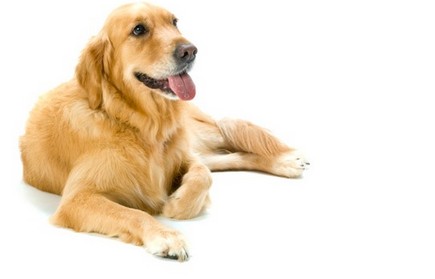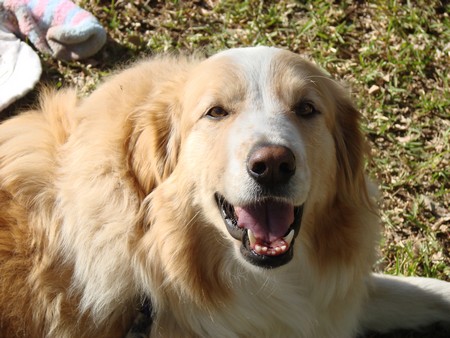An aging dog, if he is in good health, can provide companionship that is just as rewarding as playing with a puppy. The old dog’s reactions may not be as sharp, nor may he move as fast or be as agile when playing ‘fetch’ with you, but you and he will gain as much pleasure from your relationship as you did when he was younger. He may sit around a lot and be undemanding and quiet, but an elderly dog should not be ignored.
Signs of aging
Signs of old age in a dog are not difficult to spot: he starts to take things easy, spends more time than usual sleeping, and his ease of movement lessens; some dogs suffer failing eyesight and hearing. In black-coated individuals, gray areas around the muzzle develop and sometimes close to the eyes, although the overall body color is unaffected.

Lifestyle
Everything should be done to keep the elderly dog feeling as good possible. Disturbed behaviour patterns may be the result of chronic physical or mental illness. For example, a previously clean dog may have ‘accidents’. If this happens, it may be best to keep your pet in areas of the house-where such accidents don’t matter – but do not shut him away or limit his access to his family, as this would be unfair and stressful.
If your dog has remained fit and active throughout his life, carry on exercising him as normal on the basis that ‘if he doesn’t use it, he will lose it’. He will tell you when he needs to slow down, and providing you are alert to your dog’s needs you will know when and how much to ease off.
If his eyesight and hearing begin to fail, he can still enjoy life, but you may have to adapt your command signals to him so he can understand what you want. Clapping can help a blind dog, while visual signals can direct a deaf dog.
Diet
Foods specially formulated for senior dogs are available, and these contain all the nutrients the ageing body needs to remain in the best possible condition and help delay or alleviate the onset of conditions such as senility. As older dogs often suffer from liver-failure problems, a low-protein diet may be applicable; consult your vet regarding the best type of food for your dog. Older dogs are often unable to defend their food as they once could, so if you have other dogs make quite sure they are not allowed to steal his meals, perhaps by keeping them in a separate room as he eats.
Common ailments
As a dog ages, so a certain amount of body tissue degeneration occurs. This is inevitable, although with owner and vererinary care the effects can be eased. Once your dog reaches the age of 7 (or 5 if it is a giant breed) you should take him for twice-yearly veterinary check-ups, so any problems can be diagnosed and treated at an early stage. Old dogs are prone to certain ailments that include:
- liver disease
- joint stiffness and arthritis
- coat and skin complaints
- constipation due to decreased digestive-efficiency
- tooth and gum problems
- injury due to decrease in agility
- cold-related problems due to decreased body temperature regulation
- incontinence
- senility
- hearing and sight problems
- obesity-related problems
- loss of appetite
- heart disease
Seek veterinary advice for all of these ailments – the quicker they are dealt with, the better.
Companionship
Some people consider getting a puppy when their established dog gets old. This can be a good or bad decision depending on the temperament and nature of the aged dog; if he likes the puppy, then he may gain a new-lease of life. If, however, he doesn’t, or cannot cope with the puppy’s liveliness, he may resent the newcomer and become depressed and withdrawn, stop eating and become ill. If the old dog is the only one in the household and has always been a loner, it would be kinder not to get another dog or puppy as a companion.

Time to say goodbye
Eventually the older dog sleeps more and more and is increasingly reluctant to exercise. While he is able to function normally, if only in this modified way, he is probably quite happy and contented. If his bladder, bowels and limbs begin to fail and he is unable to function without mental distress or physical pain, you must seek veterinary advice, for the only humane-thing to do if this is untreatable is to bring this life to an end, allowing him to die painlessly and with dignity.
If your elderly dog displays an increased need for your company, give him plenty of attention and reassurance.